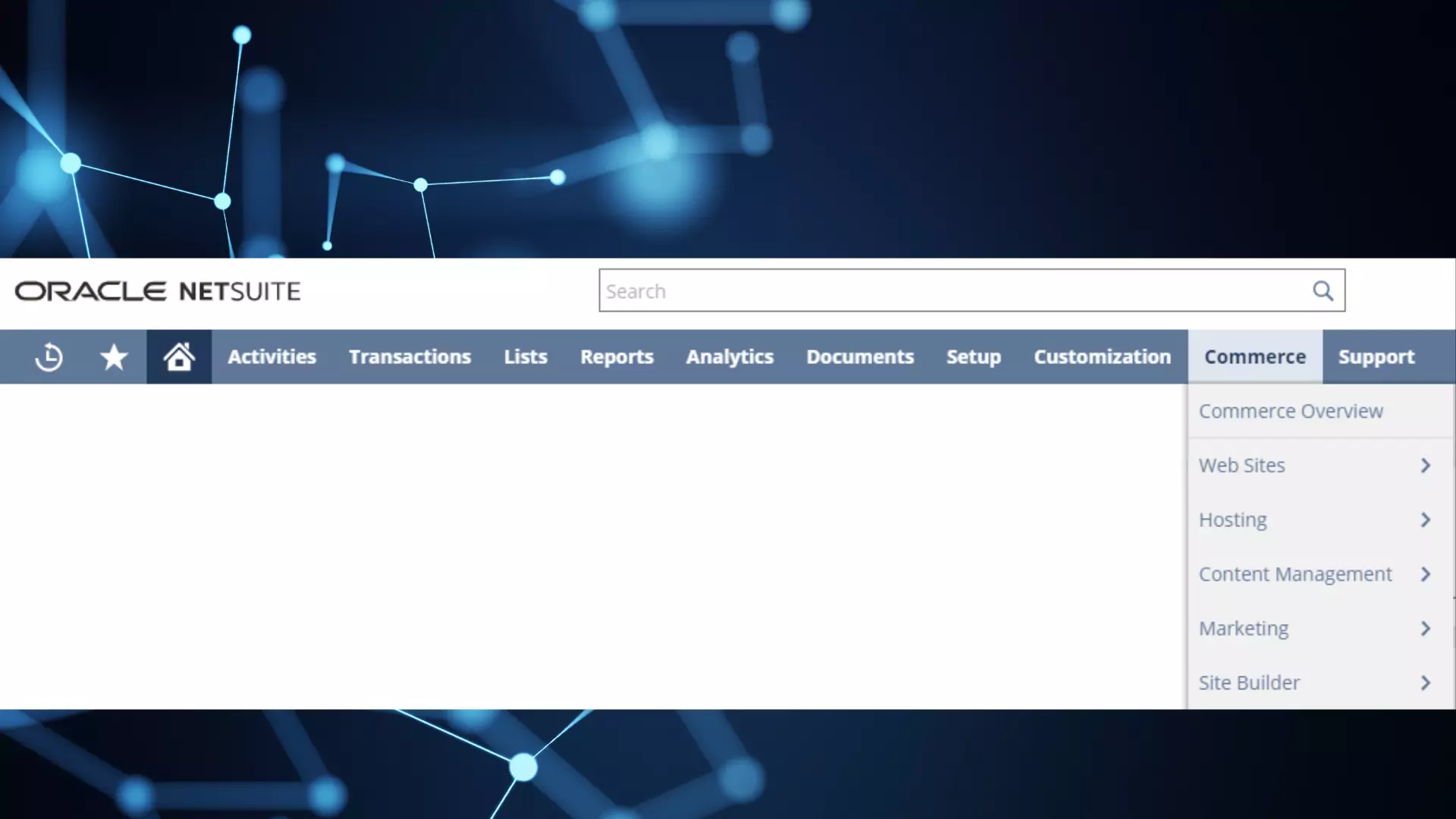Boosts Your E-Commerce Success: How to Master Cross-Channel Selling with NetSuite
In today’s e-commerce business environment, businesses are faced with growing competition, hence being in a position where they have to seamlessly engage customers across multiple channels. Cross-channel selling is the present-day necessity for increasing business reach, enhancing consumer experience, and widening revenues. NetSuite offers a strong ecosystem of cross-channel selling through its NetSuite Connector and NetSuite Commerce.

Understanding Cross-Channel Selling
Cross-channel selling is selling, interacting with customers through many different channels, online store, marketplace, social media, and even brick-and-mortar. With the sole objective to offer a smooth buying experience, the consumers should be able to engage with a brand from a number of touchpoints without really creating too much commotion.
With the increased inclination of consumers towards shopping in an integrated way, it has increasingly become necessary to make the selling processes, inventory levels, and customer records in synchronization on a cross-channel basis. Good cross-channel selling companies reap benefits such as enhanced customer loyalty, greater market penetration, and streamlined operations.
Role of NetSuite Connector in Cross-Channel Selling
The NetSuite Connector is powerful software that allows businesses to automatically synchronize their NetSuite account with various e-commerce channels, marketplaces, and other third-party applications. Through seamless data synchronization, inventory levels, product information, order status, and customer information are always current across all sales channels both within NetSuite and between NetSuite and these external systems.
Key functionalities of the NetSuite Connector
- Multi-Channel Integration: With the help of NetSuite Connector, one can integrate e-commerce to work on many platforms like Shopify, WooCommerce, and Amazon. This basically provides businesses with one dashboard to handle and manage their different sales channels. No data needs to be entered manually in such integration, which easily lowers errors and saves time.
- Real-Time Data Synchronization: The Connector makes real-time data update possible, regardless of the integrated platforms. The feature ensures consistency in relation to inventory levels, product information, and order status, hence reducing the likelihood of overselling or stockouts.
- Automated Workflows: It includes a NetSuite connector that is responsible for the automation of workflows regarding order import and fulfillment, customer updates, etc., to help a business operate efficiently, thereby moving from a tactical to strategic perspective of growth.
- Scalability: Business grows and its needs change with time. It has been designed such that NetSuite Connector can help the business grow in parallel with additional sales channels, increase in order volumes, and expansion of the product catalog.
- Customizable Integration: A business can customize the Connector to its own needs, such as mapping custom fields or changing the frequency of data synchronization. It provides for flexibility that makes sure the integration is aligned with the business processes seamlessly.

The Role of NetSuite Commerce
NetSuite Commerce is an end-to-end solution for e-commerce. In other words, businesses can create uniquely relevant shopping experiences with any device in any place where their customers shop. Integrated with the NetSuite ERP system, it offers businesses the possibility of operating the entirety of commerce operations in one place, from website management down to order fulfillment.
Key Benefits of NetSuite Commerce
- Unified Commerce Platform: NetSuite Commerce bundles e-commerce, point of sale, and order management systems into one single platform. This unified approach gives businesses the means to centralize sales and operations and provide consistent interaction with customers across different channels.
- Personalized Shopping Experience: With advanced personalization tools, NetSuite Commerce enables businesses to offer tailored experiences based on customer preferences, behaviors, and purchase history. This personalization drives customer engagement and increases conversion rates.
- Responsive Design: NetSuite Commerce supports responsive web design, providing online stores that are accessible and appealing from desktops to smartphones. This is going to be extremely crucial in terms of guaranteeing access to the market, for the reason that about half the market presently does its online shopping with mobile gadgets.
- Order Management: There is strong order management taken place with the help of NetSuite Commerce, which tends to process high number of orders coming from multi-distribution channels. It comprises features like real-time order tracking, automated order fulfillment, and integrated returns management.
- Analytics and Reporting: The platform provides deep analytics and reporting tools by which businesses can gain visibility into customer behavior, sales performance, and operational efficiency. Such visibility allows for data-driven decision-making as the business seeks to be optimized in every process.
How NetSuite Connector and NetSuite Commerce Enhance Cross-Channel Selling
NetSuite Commerce and NetSuite Connector are powerful together when powering cross-channel selling to contribute to business success. Here is how they work in tandem to amplify business success:
- Seamless Channel Integration: NetSuite Commerce, in conjunction with NetSuite Connector, allows businesses to unify online stores, marketplaces, and brick-and-mortar locations under one system. That assures inventory, orders, and customer data are updated in real time always simultaneously for a single view of your operations.
- Seamless Shopping Experience: Leveraging the personalization capabilities of NetSuite Commerce, companies can provide their clients with personalized and seamless shopping experiences across channels. At the same time, NetSuite Connector assures the customer that they will get precise data about the availability of products and order statuses, thus improving customer satisfaction.
- Effective Order Fulfillment: There is a robust system in NetSuite Commerce for order management, and combined with the automated workflows of the NetSuite Connector, it speeds the entire process of order fulfillment. Orders placed on all channels are automatically synchronized in NetSuite so that businesses can handle them from a single dashboard. It reduces errors and delays.
- Data-Driven Decision Making: With the analytics tools provided by both NetSuite Commerce and NetSuite Connector, a business is able to obtain a 360-view of its operations taking place over various channels. Information on all data sets helps in the identification of trends, optimization of inventory levels, and improvements in overall business performance.
- Scalability and Flexibility: NetSuite Connector with NetSuite Commerce allows a flexible integration for the customers as their businesses grow in different sales channels. With the scale-up service, it allows the addition of the new marketplaces or launching additional e-commerce sites without much effort or any major changes in the infrastructure.

Real-World Applications
A perfect case in point would be a retail business that sells products across online, mobile channels as well as its physical stores. For this retail business, implementing NetSuite Commerce establishes a cross-channel experience so that a customer can browse products online, check them at the nearest store, and decide to home-deliver or pick them up at the store of their convenience. The NetSuite connector ensures that inventory changes, be it through online sales or purchases at the store level, are reflected in real time across all platforms.
An example of this is a business that sells through a range of marketplaces, for example, Amazon, and eBay. NetSuite Connector will automatically integrate these marketplaces with the company’s NetSuite account to centrally manage product listings, pricing, and orders. In turn, it greatly reduces the complexity of having different platforms to manage sales, while at the same time, customer experience remains even.
Conclusion
In today’s fast e-commerce world, businesses need to be agile and highly responsive to customers. Selling across multiple channels, powered by NetSuite Connector and NetSuite Commerce, gives a business all the tools and capabilities needed in outsmarting competition. This merges diverse sales channels into one system, strengthening customer experience, eases operation flow, and scales just perfectly.
With the NetSuite powerhouse ecosystem, complexities in cross-channel selling are simplified while flexibility and scalability accommodate growth with dynamic markets. Be you a small business going on to the Internet for the first time or already a big business handling several sales channels, two necessary tools in the armory for engaging in cross-channel selling effectively are NetSuite Connector and NetSuite Commerce.
Note
Always refer to the official NetSuite documentation for detailed and specific guidance based on your NetSuite version. Additionally, you may want to involve your NetSuite administrator or seek assistance from NetSuite support for any specific challenges you encounter during the setup process.
